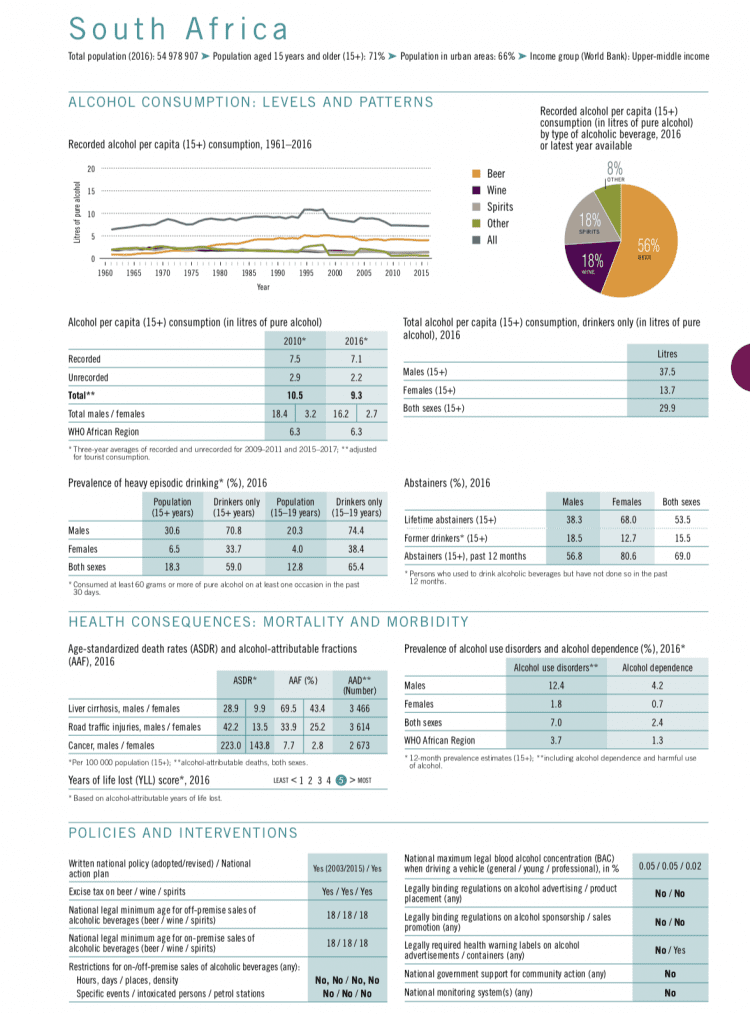South Africa: High-Risk Alcohol Use Common
Adults in South Africa consume more alcohol than adults in most other countries; previous research has shown this comes with high rates of fetal alcohol syndrome and is a driver of the country’s leading causes of death: sexually transmitted infections and interpersonal violence.
Now, the first study to look at contextual factors surrounding heavy alcohol use in South Africa, lead by the South African Medical Research Council in a collaboration with Johns Hopkins University, finds high-risk alcohol intake is common in the country, with larger container size emerging as the factor most associated with heavy alcohol consumption.
The study, published in Substance Abuse Treatment, Prevention, and Policy, found that the heaviest alcohol users accounted for 94% of all alcohol consumed, and that 93% of all alcohol was consumed on heavy-alcohol consumption occasions.
According to the World Health Organization, 69% of South Africa’s adult population abstain from any alcohol use. At the same time, those who consume alcohol are drinking 29.9 liter per capita per year. The prevalence of alcohol use disorder is much higher in South Africa than in the WHO African region.
Conclusions
The study concludes that heavy alcohol use is common among current alcohol users in South Africa, and heavy alcohol users consume most of the alcohol sold. Rates of heavy alcohol intake were higher than expected. Primary container size emerged as the most robust correlate of heavy alcohol use.
South Africa is currently contemplating alcohol policy reform, and this study underscores the importance of these draft policies and gives further impetus to various alcohol policy reforms under consideration in South Africa. The draft liquor amendment bill of 2016 proposes several evidence-based policies that could help reduce these heavy alcohol consumption occasions. Better labeling of the alcohol content of different containers is needed together with limiting production, marketing and serving of alcohol in large containers.
Rigorous monitoring of the heavy alcohol use environments may also serve to establish baseline data to evaluate the effects of any future policy changes.

